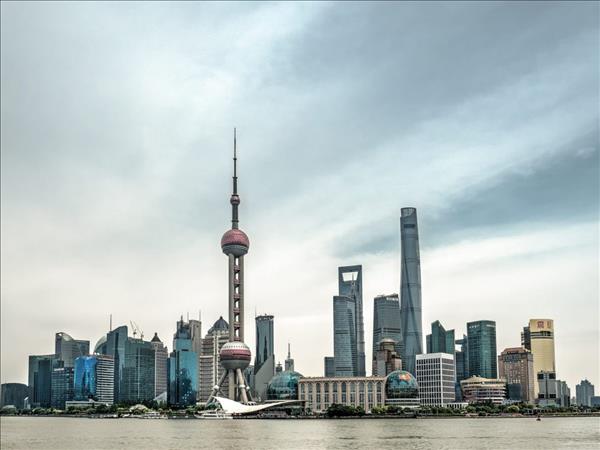(MENAFN- Asia Times) Global banks are reducing the numbers of investment bankers working in China as tough Covid rules have hurt the Chinese economy this year while IPO markets have contracted due to rate hikes in the United States.
About 10 to 20% of senior bankers will get no bonus while more than half will see theirs slashed this year, Bloomberg , citing an unnamed Wall Street banker who is responsible for one bank's remuneration.
In order to encourage market sentiment, Beijing last Friday relaxed its Covid rules by trimming the hotel quarantine period from seven to five days for incoming travelers and urging local authorities not to freely impose lockdown measures. Financial regulators also on Monday unveiled 16 measures to boost property markets.
Although these measures resulted in a stock market rally, they may not be sufficient to change the minds of foreign bankers who have decided to leave, said some analysts. The sentiment in IPO markets will remain weak for some time while property inventory is high in many Chinese cities, they added.
In July 2019, the Chinese government unveiled to open up its financial markets to foreign banks, brokerages and insurers. Over the past two years, many global financial institutions have expanded their teams in China.
However, since September this year, investment banks such as Goldman Sachs and Credit Suisse have signalled that they will cut their headcount globally later this year and in 2023, including some positions in Hong Kong and mainland China.
Hong Kong's Sing Tao Daily reported last month that Goldman Sachs sacked more than 10 employees in late September. They included six investment associates who covered retail, healthcare and technology stocks. Some employees in Shanghai and Beijing were also laid off. Globally, the bank cut 500 jobs this time.
In late October, media reports said Warburg Pincus, a New York-based private equity firm, cut about seven China dealmakers as it scaled back consumer Internet investments. Carlyle Group, a Washington-based private equity firm halved its investments for China in its new $8.5 billion Asia fund.
Tiger Global Management, a hedge fund giant, also pulled back from China after heavy losses last month.
On November 3, Reuters that Morgan Stanley would start a new round of layoffs globally, affecting teams in Hong Kong and mainland China. The report said the reductions in Asia Pacific would be greater than the bank's annual staff losses from natural attrition in the region.
Bloomberg reported on Monday that global banks were quietly cutting jobs in China due to a slowdown in deals and rising Sino-US political tensions. Bankers said China's business landscape had changed dramatically as President Xi Jinping cracked down on private sector and offshore listings while tough Covid rules had halted growth in the country.
The report said 10% to 15% of the employees in foreign banks in China would leave the country as they would not get any bonus this year.
Total IPO fundraising in Hong Kong fell 76% to about HK$70 billion in the first nine months of this year compared to the same period in 2021, according to a KPMG report published on September 30.
In the US, total IPO volumes fell 90.4% for the same period as companies postponed their listing plans due to their squeezed valuations amid the rate hikes.
The Hang Seng Index had fallen to 15,180, a 13-year low, on October 24 after the Chinese Communist Party's (CCP) 20th National Congress concluded on October 22. It fell further to 14,687 on October 31.
On November 2, the Hong Kong Monetary Authority welcomed about 200 foreign bankers in a two-day financial summit in Hong Kong despite a Number 8 typhoon signal with all schools and offices closed. Top executives from Citi, Barclays and BlackRock cancelled their trips for different reasons after US lawmakers said banks ought to face more scrutiny if they attended this summit.
Last Friday, Beijing eased its anti-epidemic rules but at the same time urged local authorities to continue to suppress the number of Covid cases.
On Monday, the People's Bank of China launched 16 measures to boost the property markets, mainly by extending loans to property markets and helping homebuyers get mortgage loans more easily. Country Garden increased 46% while Longfor Group Holdings grew 16% on the same day.
All these measures have boosted the Hang Seng Index by about 20% this month. However, it will take some time to change the minds of foreign bankers who have decided to leave, said some commentators.
Business people said Hong Kong should cancel the remaining three-day home quarantine requirements to retain and attract foreign bankers and investors. However, Jeffrey Lam, a pro-business ExCo member, said it was unlikely for Hong Kong to further relax its Covid rules in the short run.
Meanwhile, Chinese media that property inventory in key Chinese cities, including Beijing, Hangzhou and Chengdu remains high. More than 200,000 homes in Hangzhou and 150,000 in Beijing have been put on sale with a low demand from buyers.
Xu Yuejin, deputy director of research at the Index Division of China Index Research Institute, said many homeowners tried to dispose of their apartments as they expected that property prices would continue to decline for some time. Xu expects that local governments will launch new measures to support the property markets.
Follow Jeff Pao on Twitter at



















Comments
No comment